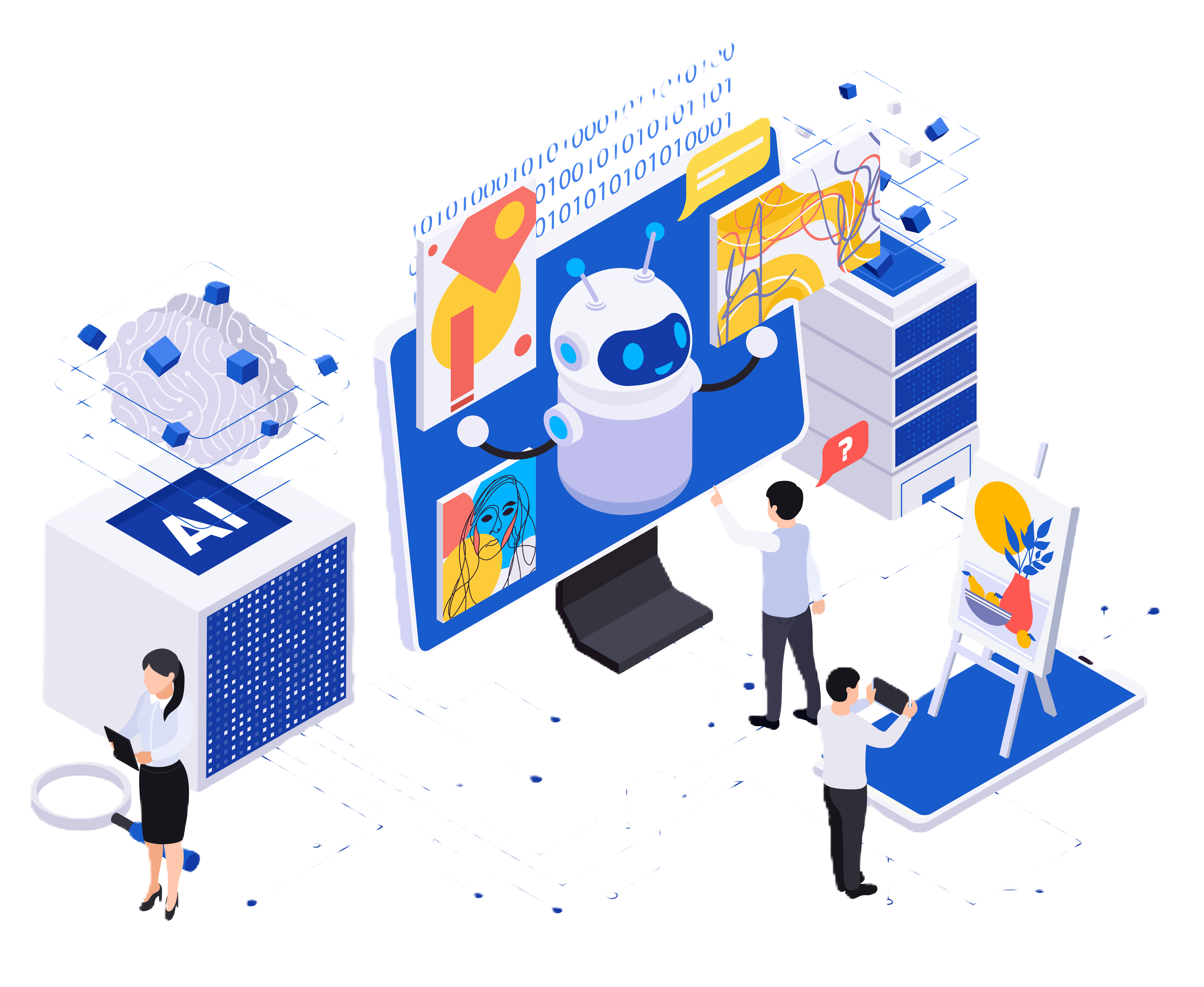CERTIFIED GENERATIVE ARTIFICIAL INTELLIGENCE PROGRAM
- Weekdays
- Classroom Sessions
- 3 Months
- Weekdays
- Online Sessions
- 3 Months
Generative AI Certification - Unlock the Future of AI Innovation
Empower Your Career with Cutting-Edge AI Expertise:
Generative AI is revolutionizing industries by enabling machines to create human-like text, images, code, and more. Whether you are an aspiring AI professional, data scientist, developer, or business leader, our Generative AI Certification from Techtroma provides in-depth knowledge and hands-on experience in harnessing the power of AI to drive innovation.
Why Choose Our Generative AI Certification?
- Industry-Relevant Curriculum – Designed by AI experts to cover the latest advancements in machine learning, deep learning, and neural networks.
- Hands-On Learning – Gain practical experience with ChatGPT, DALL·E, Stable Diffusion, GANs, Transformers, and LLMs through real-world projects.
- Expert-Led Training – Learn from seasoned AI professionals and industry mentors with extensive experience in AI and data science.
- Globally Recognized Certification – Enhance your resume and showcase your AI expertise with a certification from Techtroma, a trusted name in AI education.
- Career Advancement Support – Get access to job assistance, resume-building workshops, and networking opportunities with industry leaders.
Who Should Enroll?
- AI & ML Enthusiasts
- Data Scientists & Analysts
- Software Engineers & Developers
- Business Leaders & Decision-Makers
- Students & Professionals Looking to Upskill in AI
What You Will Learn?
- Foundations of Generative AI & Deep Learning
- Understanding Large Language Models (LLMs)
- Building AI-Powered Chatbots & Virtual Assistants
- Image & Video Generation with GANs & Diffusion Models
- AI for Text Generation & Code Completion
- Ethical Considerations & Responsible AI Development

Course Highlights
- Mode: Online & Classroom Sessions Available
- Duration: Flexible Learning Options (6-12 Weeks)
- Projects: Real-World AI Projects & Capstone
- Tools & Technologies: OpenAI, TensorFlow, PyTorch, LangChain, Hugging Face
- Certification: Industry-Recognized Techtroma AI Certification
Course Curriculum
- Understanding the fundamentals of ChatGPT and its role in AI-driven communication
- Exploring the basics of Natural Language Processing (NLP) and its relevance to prompt engineering
- Introduction to prompt engineering and its significance in optimizing ChatGPT responses
- Crafting effective prompts to generate accurate and contextually relevant outputs
- Strategies for managing conversation context within the prompts
- Understanding context and its impact on AI-driven conversations
- Techniques for maintaining coherent and contextually appropriate interactions
- Handling ambiguous queries and refining prompts for improved conversation flow
- Fine-tuning prompt engineering for specific use cases and domains
- Optimizing response quality by incorporating user preferences and desired outcomes
- Experimenting with different prompt structures and approaches to enhance ChatGPT performance
- Exploring ethical implications and responsible AI usage in prompt engineering
- Addressing biases and promoting inclusive conversations
- Best practices for ensuring ethical and responsible AI-driven communication
- Examining real-world applications of ChatGPT prompt engineering in various industries
- Analyzing case studies to understand successful implementations and learn from challenges
- Engaging in hands-on exercises and projects to apply prompt engineering concepts
- Developing practical skills through guided practice and feedback from instructors
Generative AI Engineer Project Lifecycle
Phase 1: Problem Definition & Data Preparation.
Define the use case (text, image, or code generation) and set objectives. Collect, clean, and preprocess data for training. Perform Exploratory Data Analysis (EDA) to identify patterns.
Phase 2: Model Development & Fine-Tuning
Select and fine-tune a pretrained model (GPT, Stable Diffusion, GANs) on domain-specific data. Optimize performance using hyperparameter tuning and evaluation metrics like BLEU or FID.
Phase 3: Deployment & Monitoring
Deploy the model via APIs, cloud, or on-device inference. Monitor performance, mitigate biases, and update models based on real-world feedback to ensure accuracy and scalability..
Certification
Upon successful completion of the training, participants will receive a Course Completion Certificate from Techtroma. This certification validates your skills and knowledge in Data Science, making you industry-ready. Please note that this is not a vendor-specific certification but a recognition of your learning from Techtroma.
